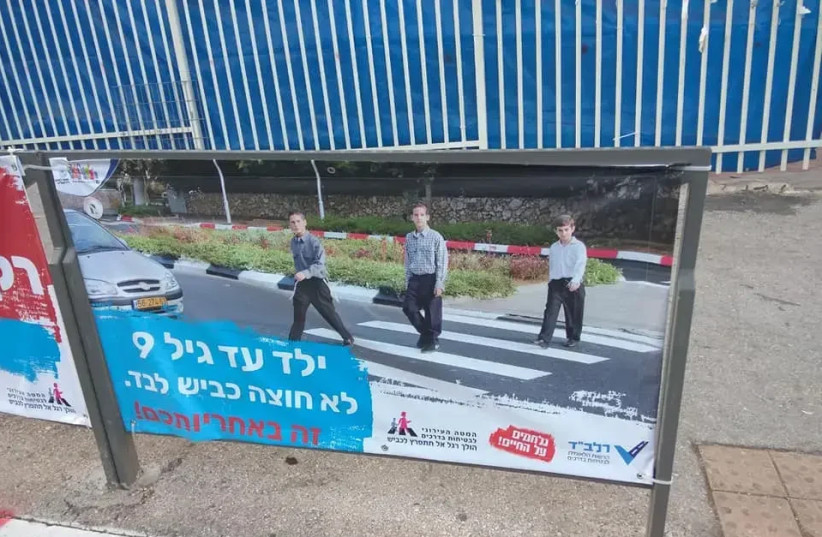"I'm on my way North, and there was an accident here. I'm asking you to drive carefully and protect your life and the lives of passengers on the roads," Transportation Minister Miri Regev urged viewers in a video she uploaded to social media, with an overturned car behind her. Despite this, it is obvious that Regev's commitment to reducing road accidents stops when the efforts need to be financed.
Recently, the National Road Safety Authority decided on a dramatic cut in one of the most important projects it finances: traffic education for 10th graders in high schools.
The course is 30 hours of study, a dedicated website students can access, videos, and presentations that teach future drivers about safe and balanced driving, and identifying dangers on the road. The course is the education system's method to give students life-saving knowledge that will accompany them toward driving lessons, including scooters and electric bikes.
The program was launched a little less than a decade ago, with the understanding that education and advocacy are more effective than punishment and enforcement. It also includes bonus group study sessions so at the end of the course, students can take the test together instead of studying alone.
Just four years ago, when the Transportation Ministry celebrated a record of 45,000 students who took the theory test in 2020, Regev was the Transportation Minister in her first term. Regev boasted: "The data proves that road safety begins at school. Out of the 45,000 10th-grade students who participated this year in the new initiative of the traffic education classes, 30,000 passed the theoretical test successfully and are ready to start the course of study for the practical test."
Since then, the number of participants has increased approximately three times and exceeded 100,000 per year. NIS 17 million, a relatively small amount compared to the budget of the Transportation Ministry, is spent by the program each year. This budget is financed by the ministry, mainly used to compensate teachers for teaching the course.
However, as revealed in Walla Cars, in the 2024 budget, the Safety Authority's budget will be cut by 10%, to 62.5 1 million shekels, as part of the cut in the government ministries' budget. The Authority has now decided that the bulk of the cut will come 40% of the traffic education budget, which means it will lose NIS 6 million. This means that tens of thousands of 15 and 16-year-olds will not learn proper traffic education. Regev did not object to the cancellation of the cuts.
The Transportation Ministry is defined as an independent authority, but Regev is very involved in its subdivisions from the Airport Authority, to the Israel Railways, National Transportation Infrastructure Company, and the Metropolitan Mass Transit System. Since Regev's return to the Transportation Ministry, chairman Avi Naor and CEO Dr. Erez Kita have left the organization. They were appointed by the previous minister, Merav Michaeli. In the meantime, Regev only succeeded in appointing a new chairman to the Authority: retired superintendent Yoram Halevi.

Young Israeli drivers deprived of proper driving education
Attorney Yaniv Yaakov, CEO of the Or Yarok Association for Safer Driving in Israel, said in response, "This is a cry for generations. Young drivers and teenagers are a population at high risk of being involved in traffic accidents, and they are also injured at a higher rate than their license holders. These are millions of shekels that will not change anything to the treasury but they are critical to saving the lives of young drivers. Such a significant cut is very bad news for road safety and may lead to an increase in road accident fatalities in the immediate term. Instead of strengthening safety values among the youth, the opposite and incomprehensible thing happens, where money is taken and the education of the next generation of drivers is harmed. This is a dangerous step that must be prevented."
In response, the Transportation Ministry stated: "We see great importance and benefit in traffic education in the education system, and a real opportunity to influence the generation of young drivers. Therefore, in 2017, the authority led a comprehensive reform of traffic education. The Education Ministry and the Licensing Division of the Transportation Ministry provide lessons and theory tests for 4,300 11th graders every year. Unfortunately, there has been a cut in the traffic education budget, along with further cuts in spending on advocacy, field activities, research, and more. We hope to agree on a budget that will allow this important project to continue in the 2025 school year as well."
